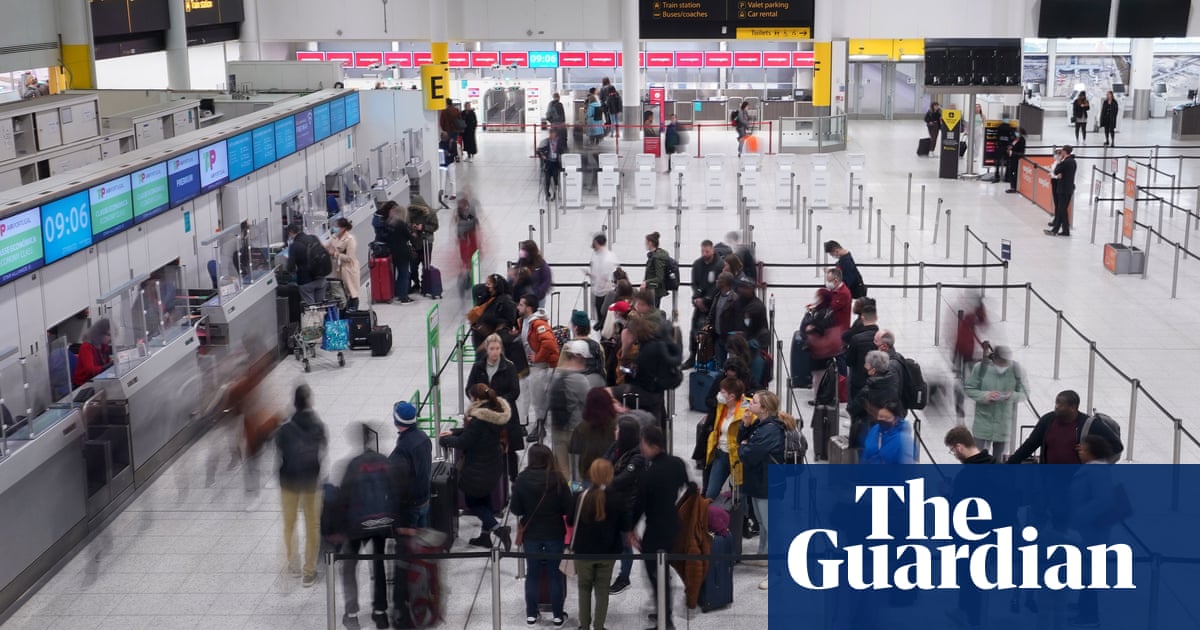Gatwick scraps capacity restraints amid return to ‘business as usual’ - 3 minutes read

Gatwick airport has said it will not need to extend its capacity restraints beyond the end of the month, hailing a return to “business as usual” – before promptly cancelling another 26 flights.
The company said on Tuesday that normal operations had resumed after months of strain on airports and airlines across Europe amid a surge in demand and staff shortages as pandemic restrictions eased.
The UK’s second-biggest airport also said it had returned to profit, making a profit after tax in the first half of the year of £50.6m, a turnaround on a £244.6m loss in the same period last year.
However, the announcement was marred when shortly afterward the airport cancelled 26 of the day’s 180 scheduled easyJet flights, citing staff absence in its air traffic control tower because of sickness and apologising for inconvenience caused.
The airport had previously announced in June that it was moderating the growth in the number of flights after extensive disruption over the platinum jubilee bank holiday. Without constraints over the summer, passengers would have experienced poor standards of service, Gatwick said, while queues would have been long and many flights would have been delayed or cancelled at the last minute.
Announcing the planned end to constraints, the airport’s chief executive, Stewart Wingate, said: “The unprecedented growth in traffic led to short-term operational issues in June; however, our decisive early action to limit the airport’s capacity in the crucial school holiday period of July and August has ensured passengers have experienced reliable flight timetables over the summer months.
“We are now very much operating business as usual and do not see any reason to extend the capacity declaration.”
He said the boom in demand for overseas travel had helped the airport bounce back from the pandemic, with demand between April and June rising to 74% of pre-pandemic levels.
More than 13 million passengers travelled through the airport in the six months to the end of June and it lifted its forecast for the number expected to pass through this year to 32.8 million.
But this prediction could be hit by runaway inflation, which is pushing up costs and making people cut back on luxuries.
“We still have some considerable way to go, but strong demand has fast-tracked Gatwick’s recovery from the pandemic, particularly in the last quarter since all UK travel restrictions were removed,” Wingate said.
The picture at Gatwick contrasts with that of London rival Heathrow, which earlier this month extended its own capacity cap of 100,000 passengers a day for another six weeks.
The limit was originally meant to last until 11 September, but the airport said the date would be pushed back to 29 October, adding that the measure was helping to reduce last-minute cancellations.
On Monday, British Airways, Heathrow’s largest operator, announced 10,000 cancellations affecting flights to and from the airport until the end of March next year, an 8% reduction to its short-haul timetable.
The airline had already cut tens of thousands of flights over the summer in an attempt to ease pressure caused by staffing problems faced by airports and the airline.
Source: The Guardian
Powered by NewsAPI.org